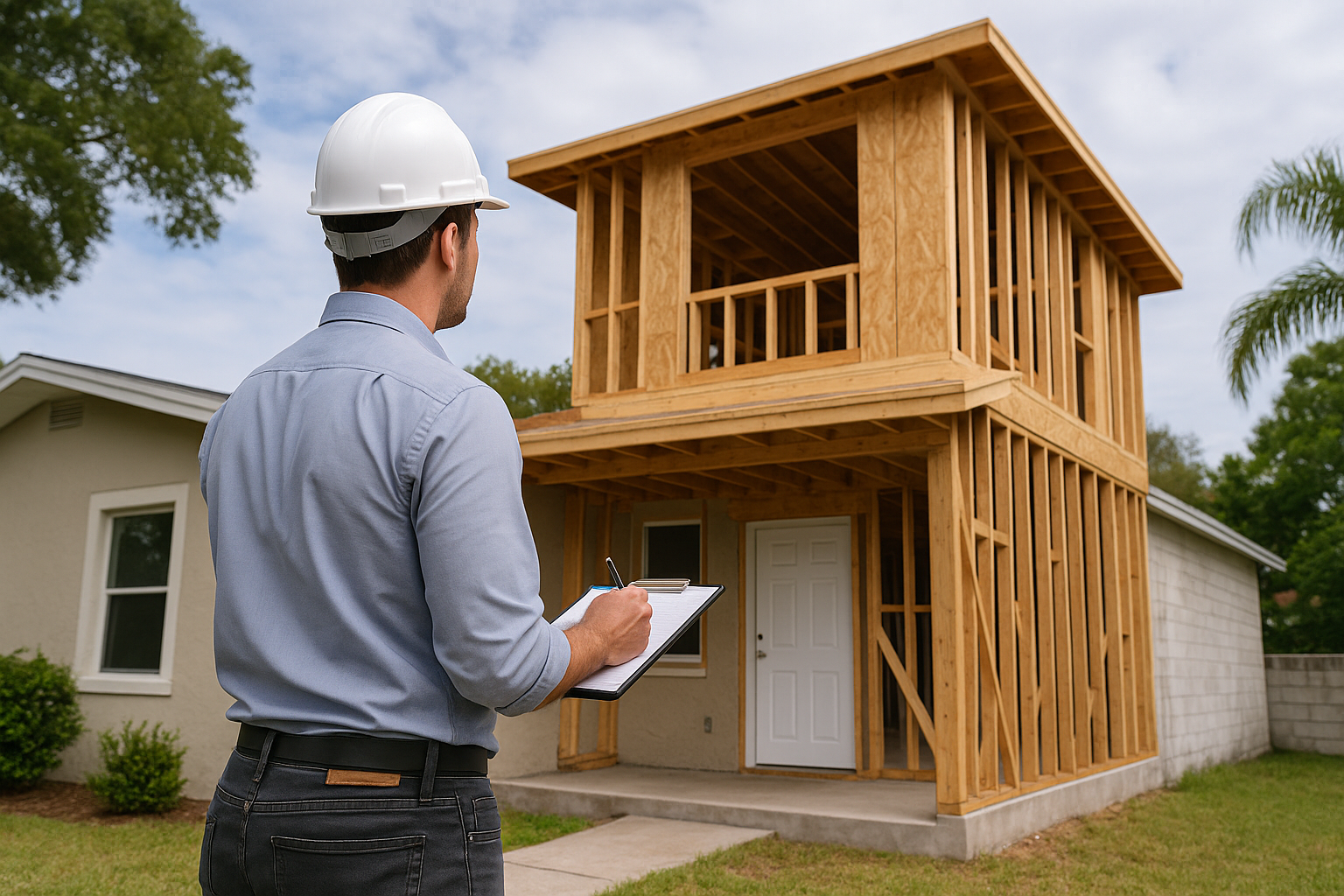By using our website, you agree to the use of cookies as described in our Cookie Policy
a
Rss Feed
Factors to Consider When Relocating: Your Guide to Choosing the Perfect Neighborhood
Relocating to a new city is a significant decision, especially for those in the construction industry. Your neighborhood choice can significantly impact your daily life and career. The right location can mean a shorter commute to job sites, easier access to suppliers, and a better understanding of local building codes and regulations. It can also mean a more enjoyable lifestyle, with amenities and conveniences that suit your needs. If you're in the midst of a move, remember that professional loading and unloading services can simplify the process considerably.
This guide will explain the key factors to consider when relocating, helping you make an informed decision about where to put down roots in your new city. We'll cover everything from the cost of living and commute times to the job market and neighborhood amenities, giving you a comprehensive overview of what to look for in your ideal location.
Key Factors to Consider Before Moving
When contemplating a relocation, it's crucial to weigh a multitude of factors to ensure your new location aligns with your lifestyle and career aspirations. Here, we'll break down some of the most important factors to consider when relocating.
Cost of Living
The cost of living is a major factor to consider when relocating, as it can significantly impact your budget and quality of life. Housing costs, including rent or mortgage payments, are typically the most substantial expense, but there are many other factors to consider when moving. Utilities like electricity, gas, water, and internet can vary widely depending on the new location. The cost of groceries, dining out, and entertainment should also be factored in. Local taxes, such as property, sales, and income taxes, can also have a significant impact on your overall expenses.
Before making your decision, thoroughly research and compare the cost of living in potential neighborhoods to ensure they fit your budget. There are numerous online resources, such as cost-of-living calculators and local real estate websites, that can help you estimate these costs. Consulting with a local real estate agent can also provide valuable insights into the financial aspects of living in your new city.
Job Market and Opportunities
No matter your profession, the job market in your potential new city is crucial. Research the types of companies and industries that thrive in the area. Are there opportunities in your field? Is the economy stable or growing?
If you're employed, consider proximity to your workplace or the potential for remote work. If you're self-employed or looking for new opportunities, assess the area's overall economic climate and specific prominent industries. Networking with professionals in your field can provide valuable insights into the local job landscape.
Commute and Public Transportation
Your daily commute can have a major impact on your quality of life and overall satisfaction with your new location. Evaluate the commute time and options available to you, whether it's by car, public transportation, or even walking or biking. Consider the proximity of your potential new home to your workplace, as well as to schools, grocery stores, and other essential amenities.
The availability and reliability of public transportation are important factors to consider when relocating, especially if you don't own a car or prefer not to drive. Research the local public transportation system to assess its coverage, frequency, and cost-effectiveness. Additionally, investigates traffic patterns and potential delays, particularly those caused by ongoing construction projects, which can be common in growing cities.
Additional Factors to Consider When Relocating
Beyond the essentials, there are more things to consider when relocating to a new city.
Housing Market
Before you move, research the types of homes available (houses, apartments, condos) to find options that suit your needs and budget. Check out the overall condition of homes in different areas—older homes might need more repairs, while newer ones could be more energy-efficient. If you are considering renovations, let the contractors research local regulations or requirements that may affect their ability to work in the new location
Weather Conditions
Weather can greatly affect construction projects. Research the climate in your new city. Extreme heat, cold, rain, or snow can cause delays, affect materials, and even be dangerous for workers. Think about how the weather might impact your specific work. If you mostly do indoor renovations, the weather might not be as big of a deal as it would be for someone specializing in roofing.
And don't forget your personal preferences! If you enjoy outdoor activities, a mild climate might be a good fit. If you prefer snowy winters, choose a colder spot.
Neighborhood Amenities and Safety
Research nearby amenities such as schools, healthcare, grocery stores, restaurants, and parks. Consider the crime rates and overall safety of potential neighborhoods.
For example, construction professionals might prioritize proximity to suppliers or home improvement stores.
Choosing where to relocate is a big decision with many factors to consider. Before making your final decision, visit potential neighborhoods in person if possible. This will allow you to assess the area and explore local amenities. If visiting isn't feasible, utilize virtual tours or online resources.
Talking to locals or real estate agents can also provide valuable insights into the community.
If you're relocating for a new job, consider renting temporarily before buying a home. This will give you time to explore different neighborhoods and ensure you make the right choice.
Making Your Decision
When deciding where to live, it's essential to weigh all the factors to consider when relocating. This process involves assessing the potential neighborhood's amenities, cost of living, and overall environment. Here are some crucial steps to guide you through making the best choice for your new home.
Visit Potential Neighborhoods: One of the most effective ways to get a feel for a new area is to visit in person. Walking through potential neighborhoods allows you to observe daily life, check out local amenities, and see if they align with your lifestyle. Pay attention to aspects like proximity to work, schools, healthcare facilities, and recreational areas. If visiting in person isn't feasible, consider virtual tours or utilizing online resources to gather information.
Talk to Local Residents and Real Estate Agents: Speaking with people who live in the area can provide invaluable insights that you won't find online. Local residents can share their experiences, highlighting both the positive and negative aspects of the neighborhood. Real estate agents, on the other hand, can offer professional advice on market trends, property values, and emerging developments in the area. This firsthand knowledge is crucial for making an informed decision.
Consider Renting Before Buying: If you’re moving to a new city for a job offer or other reasons, renting temporarily can be a wise choice. Renting allows you to experience the neighborhood firsthand without the long-term commitment of buying a property. This approach can help you better understand the new environment and decide if it’s the right fit for you and your family. Additionally, renting gives you the flexibility to explore different areas before making a final decision.
Evaluate Commute and Accessibility: When considering a new neighborhood, consider the daily commute and accessibility to essential services. Factors to consider include proximity to your workplace, public transportation options, and major highways. Easy access to these can significantly impact your quality of life, reducing stress and saving time.
Assess Community and Lifestyle Fit: Another factor to consider is the community and lifestyle offered by the neighborhood. Evaluate whether the area aligns with your interests and preferences. Look for neighborhoods with amenities that suit your lifestyle, such as parks, restaurants, local shops within walking distance, and social activities. Consider how easy it is to meet new people and whether the community has people with similar interests.
Factor in the Cost of Living: The cost of living is a significant factor when relocating. It's essential to research the overall expenses associated with living in the new area, including housing costs, utilities, taxes, and everyday expenses. Compare these costs with your current living situation to understand the financial impact. Moving expenses can add up quickly, so plan your budget accordingly to avoid unexpected surprises.
Research Future Development Plans: Understanding future development plans in the area can also be a critical factor in your decision. New developments can impact property values, traffic patterns, and the overall feel of the neighborhood. Check with local planning authorities or real estate agents to get information on upcoming projects and how they might affect the area.
Evaluate Relocation Assistance: If your new employer offers relocation assistance, take advantage of these benefits. Relocation packages can help offset moving costs and provide resources to ease the transition. Some companies offer comprehensive relocation services, including help with finding temporary housing, moving companies, and other essential services.
Finding the Perfect Neighborhood for You
As you embark on your relocation journey, remember that choosing the right neighborhood is a pivotal step in ensuring a smooth transition and long-term satisfaction in your new city. By carefully considering the factors outlined in this guide, you'll be well-equipped to make an informed decision that aligns with your professional goals and personal preferences.
If you're still feeling overwhelmed, don't hesitate to take your time and explore all your options. Reach out to local real estate agents who specialize in the construction industry, as they can offer valuable insights and guidance tailored to your specific needs. You can also consult online relocation guides or explore real estate websites that cater to construction professionals.
‹ Back






.png)
